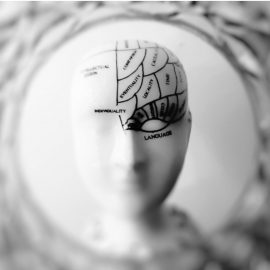

This article is an excerpt from the Shortform book guide to "The Courage to Be Disliked" by Ichiro Kishimi and Fumitake Koga. Shortform has the world's best summaries and analyses of books you should be reading.
Like this article? Sign up for a free trial here .
Do you seek validation from others—whether that be online or in-person? Why is that setting an impossible goal?
In a world that is focused on social media and external validation, many people have started to seek happiness through the approval of others. The problem is that other people’s opinions are out of your control and if you rely on them for happiness, then you don’t control your own happiness levels.
Continue below for an in-depth look at how seeking external validation can affect you.
External Approval Isn’t Worth Pursuing
In their book The Courage to Be Disliked, Kishimi and Koga note that even if unhappy people successfully earn the approval of others, they do so at great cost. By seeking validation from others, unhappy people ultimately end up living other people’s lives. Instead of pursuing their own goals, unhappy people follow the expectations of others, sacrificing their own desires (and happiness) in the process. For example, a young adult may decide to go to medical school to please their parents despite hating the idea of being a doctor.
| A Biological Need for Approval There is some evidence to dispute Kishimi and Koga’s claim that approval only makes us happy because we’ve chosen to want it. In Digital Minimalism, Cal Newport explains how humans are biologically predisposed to base their happiness on social approval. Unhappy people may not have chosen this goal at all—it’s a drive they’re born with. Neuroscientists have identified a set of regions in the brain that activates whenever you’re not concentrating on any specific task, which they named the “default network.” They discovered that the default network is the same network that activates when humans navigate social situations, indicating that unless we intentionally do otherwise, we’re constantly monitoring the status of our relationships with others. The default network lights up even in the brains of newborn babies, showing that social cognition is deeply rooted in our biology. Does this mean that Kishimi and Koga are wrong? Are we biologically driven to abandon what we really want and live the lives other people want us to? Not necessarily—unlike Newport, Kishimi and Koga make a distinction between the need for social approval and the need for positive social connection. As we’ll discuss in the final part of this guide, Kishimi and Koga would argue that it’s possible to satisfy our social needs through unconditional contribution to others instead of conditional approval from others. |
Unhappy People Must Cope With an Impossible Goal
We’ve established that external approval is ultimately unfulfilling. However, this isn’t the worst consequence of making approval from others your end goal.
Kishimi and Koga imply that the main problem with making approval from others your ultimate goal is that much of the time, this goal is impossible to achieve. In the majority of cases, approval is conditional—others will like you only if you do what they want you to do. This means that whether or not others approve of you is out of your control. Sometimes, there will be nothing you can do to get someone to like you.
After failing to achieve this impossible goal, unhappy people cope with their failure in two interconnected ways, which we’ll explore below.
Coping Mechanism #1: Avoiding the Impossible Goal
Kishimi and Koga explain that when faced with the often impossible task of earning the approval of others, unhappy people often cope by setting a new goal: to avoid trying and failing to earn the approval of others. Instead of pursuing the impossible goal, they choose not to try at all. As a result, they unconsciously manufacture negative emotions such as fear and self-loathing to avoid trying to win others’ approval.
| Intentionally Failing the Impossible Goal People who avoid trying and failing to earn the approval of others, as Kishimi and Koga describe, are still building their lives around the outcome of this impossible goal, rather than disconnecting from it entirely. In doing so, they only intensify their emotional attachment to the goal, deepening their unhappiness when they continue to fail to achieve it.In contrast, a healthier approach would be to emotionally separate from the impossible goal entirely by intentionally failing to achieve it while putting greater focus on a new, higher goal. To accomplish this, many recovering approval-seekers pursue a new goal to intentionally embarrass themselves, desensitizing themselves to social humiliation and reducing their emotional attachment to the goal of approval from others. For example, in The Four-Hour Workweek, Tim Ferriss outlines a number of “Comfort Challenges” designed to increase your tolerance for social discomfort and learn to cope with disapproval or rejection from others. These challenges include maintaining eye contact with friends and strangers for uncomfortable lengths of time and asking attractive strangers for their phone numbers. Ferriss asserts that practicing these challenges will make it easier for you to suffer discomfort when striving to achieve higher goals—for example, while negotiating more favorable business deals. |
Coping Mechanism #2: Adopting Limiting Beliefs
According to Kishimi and Koga, to achieve this goal of inaction, unhappy people adopt beliefs that give them excuses to deny responsibility for their own life. They assume that there’s some unchangeable part of them that prevents them from being liked by others.
Kishimi and Koga explain that unhappy people use these limiting beliefs to convince themselves that they are unable to choose their own lifestyle or make positive changes in their life. In doing so, unhappy people successfully achieve the goal of avoiding failure but trap themselves in a hopeless, miserable lifestyle by convincing themselves they don’t have the power to change it.
| You’re Responsible for Everything in Your Life In The Subtle Art of Not Giving a F*ck, Mark Manson explains that one reason so many of us adopt limiting beliefs and avoid taking responsibility for our own lives is the fact that we falsely assume that we should only take responsibility for things that are our fault. We believe that if someone else causes our problem, they should be responsible for fixing it for us—it’s only fair. Likewise, we’re reluctant to put in the work on a problem we didn’t create. This in itself is a limiting belief—when we label a situation “unfair” and refuse to take action, we only harm ourselves. The way to avoid all limiting beliefs is to abandon this notion completely: Problems are the responsibility of the person they affect, not the person who causes them. This is because the way to live the happiest life possible is to accept responsibility for every single problem in our lives, especially those that aren’t our fault. Even though many people are randomly born with disadvantages, Manson argues that they can overcome them and find happiness by taking radical responsibility for their lives. |

———End of Preview———
Like what you just read? Read the rest of the world's best book summary and analysis of Ichiro Kishimi and Fumitake Koga's "The Courage to Be Disliked" at Shortform .
Here's what you'll find in our full The Courage to Be Disliked summary :
- Why you care too much about what other people think of you
- How to tap into the freedom and joy inherent in human existence
- How to overcome trauma from your past






